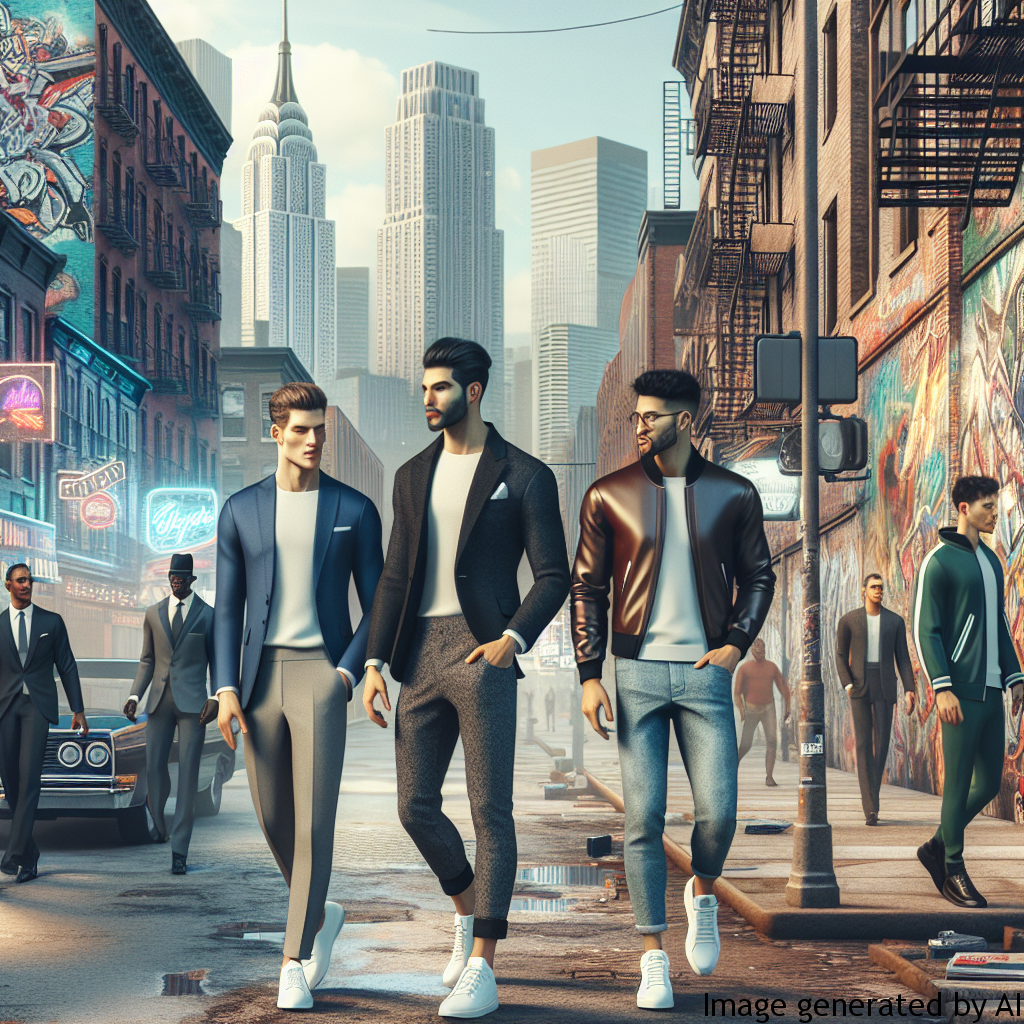Introduction
Men’s fashion and urban culture have always had a close relationship, influencing and mirroring each other in various ways. Fashion is a powerful tool with which individuals can express themselves, a narrative medium that reveals one’s personality, attitudes, and beliefs. For men in urban cultures, fashion functions as a way to affirm their identities, project their desired images and at times challenge societal norms. It’s essential to understand that these identities and images are often indissolubly aligned with societal gender expectations, which could have significant influences on men’s psychological health.
Gender Expectations and Their Impact on Men’s Psychological Health
Traditional notions of masculinity can have profound effects on the mental wellbeing of men.
Pressure to Conform to Masculine Stereotypes
Customarily, masculinity has been associated with qualities like strength, stoicism, competitiveness, and emotional suppression. This strongly ingrained societal expectation could strain men to conform or even surpass these standards, potentially leading to mental health issues like depression, anxiety, and poor self-image.
Resistance Against Non-Conformity
Resistance against non-conformity is another consequence of gender expectations. Men who don’t fit into traditional masculine archetypes or who express themselves in a manner seen as contrary to societal “norms” often face stigmatization and exclusion, further aggravating their psychological distress.
Examples of How Gender Roles Can Influence Men’s Lives
The fashion industry, while evolving, is still to a great degree ingrained with traditional gender roles. Men are typically expected to dress in a more conservative, less expressive manner compared to their female counterparts. However, in some urban cultures, men are gradually breaking away from these conventional “rules,” embracing flamboyant, gender-neutral, or even traditionally feminine elements in their fashion. This shift can be seen as a form of resistance against stereotypical gender roles, leading to more flexibility and freedom in self-expression but can also invite criticism and ridicule from rigid quarters.
Furthermore, societal expectations can directly influence men’s careers and social roles. Traditionally “masculine” occupations such as construction work, mechanics or leadership positions are held in high esteem compared to jobs seen as “feminine”, reinforcing harmful stereotypes. This pressure could force men into roles or careers they are not passionate about, affecting their overall quality of life.
Tips to Improve Psychological Health Considering Gender Roles
Firstly, awareness and understanding are crucial. Men need to realize the societal pressures they are facing, and how they are being influenced to conform to certain roles or expectations. This awareness can help them question these expectations and challenge stereotypes.
It’s also essential for men to seek professional help when needed. Prolonged feelings of unease, stress, or low self-esteem are warning signs that should not be ignored. Therapists and counsellors can provide tools and techniques to deal with these emotions healthily.
Lastly, fostering an environment of acceptance and open conversation about these issues can make a big difference. It’s important to support and encourage expression outside the presumed norms, not just in fashion, but in every aspect of life.
Conclusion
While fashion serves as a mirror reflecting societal norms and beliefs, it can also be a catalyst for change. As men’s fashion continues to evolve, it can challenge and redefine masculinity beyond its traditional confines. However, to fully embrace this change, a deep understanding of gender roles, their impact, and the long-standing societal expectations placed on men is essential. Above all, promoting psychological well-being and acceptance should lie at the heart of this progressive transformation.

